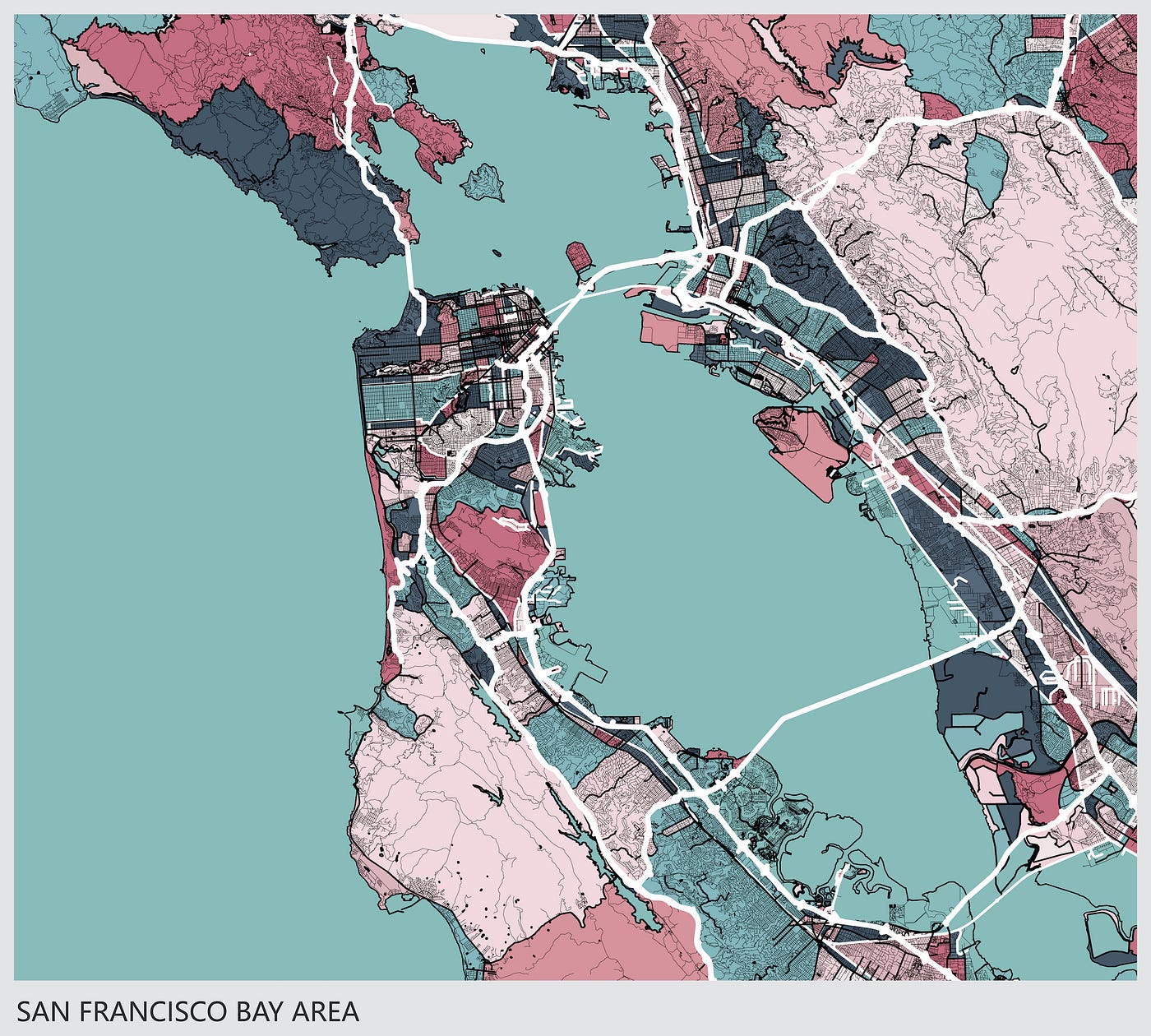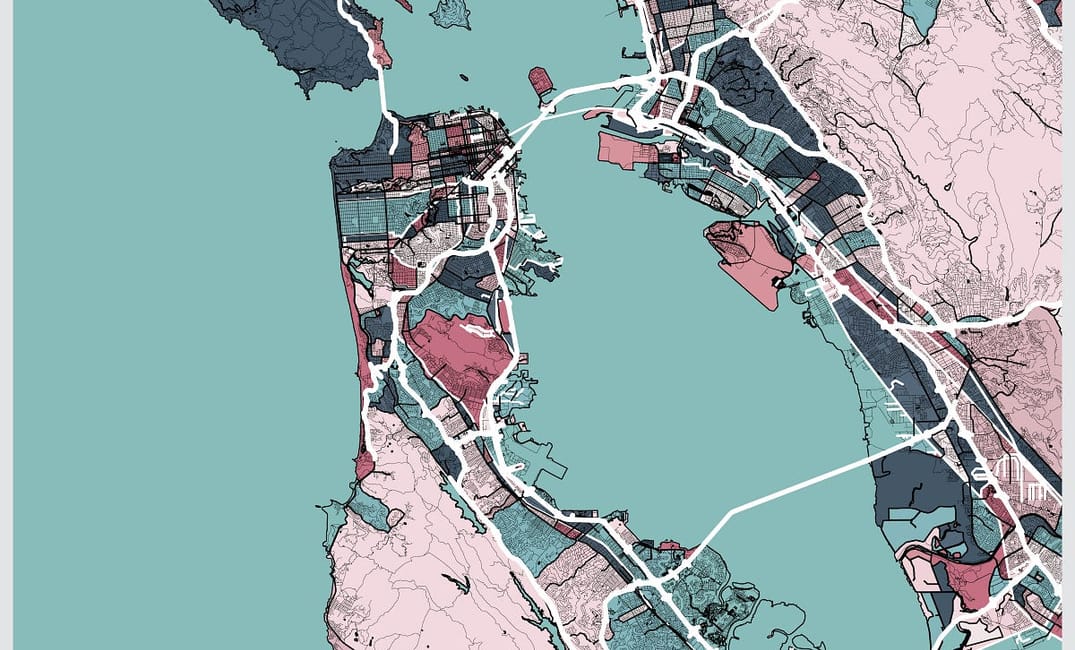
Supposedly, Silicon Valley is dead. People have been claiming this for years — hell, I did a podcast about it recently, too — but we’re seeing some increasingly compelling reasons why this might be true now more than ever before. As Maëlle Gavet recently identified in Harvard Business Review, the potential demise of Silicon Valley is due to four main factors:
- The biggest companies here have become overbearingly big.
- There hasn’t been a good IPO in a minute, and there have been some real fumbles, like Uber and WeWork.
- People and regulators are more aware of the downsides of these platforms.
- The public is becoming disgusted with the valuations and the actions of the execs. (Do we really need trillion-dollar companies?)
Plus: Covid-wrought remote work has caused many to flee California and San Francisco-area rents have subsequently plummeted. So… Is the game ending? Or no?
Did Steve Jobs actually predict the demise of Silicon Valley?
Before Apple, Steve Jobs had a variety of life experiences that informed his innovations. He dropped out of college, sat in on a calligraphy class, and discovered an appreciation for design. He explored India and Buddhism, which led to Apple’s minimalist aesthetic. His time living on an apple orchard was the inspiration for the iconic logo, and his lifelong passion for music led to the launch of iTunes.
Now compare that with Mark Zuckerberg, one of the next-generation tech titans. He created Facebook in college. Even if he pulls a Bill Gates and walks away in his fifties to pursue other things, all he’s known up to this point is the Silicon Valley tech world — that culture, those types of jobs, those types of experiences. Zuckerberg has existed in the insular bubble of Silicon Valley for his entire adult life.
This bubble affects all tech workers who flock to Silicon Valley. There are fewer Jobs-like life experiences — no “living on an apple orchard” or “taking a calligraphy class” — for these people. When the workforce lacks diversity in their life experiences, the creativity and functionality of the products they build will decline. As it declines, other nations and other industries will rush in to fill the tech industry void.
Is this a doomsday scenario? Of course. Would it take years to play out? Naturally. But even way back in 1995, Steve Jobs was speaking about the same issues that might bring down the industry where he made his fortune.
Maybe we just need to stop deifying these companies
People love to breathlessly analyze what is happening in Silicon Valley companies in terms of thought process, new products, the next wave of tech, etc. Entire Substack newsletter ecosystems exist to pontificate on what Tim Cook and Zuck are considering on a weekly basis.
But it’s important to consider Silicon Valley a bit differently too: Chamath Palihapitiya, a tech executive and founder of Social Capital, told Stanford Business School students, “fail fast” has become the conventional wisdom of Silicon Valley. And when it comes to consumer businesses and apps, that makes sense, says Palihapitiya. Consumer internet businesses like Facebook are about exploiting psychology, and businesses need to fail fast to keep pace with the shifting tastes and desires of consumers. But that formula doesn’t work for “anything that really matters,” he says. “It is not how you solve diabetes. It is not how you use precision medicine to cure cancer. It is not how you educate broad swaths of the world’s population. When you unpack it, what you realize is that fast money returns can completely decay long-term thinking and sound judgment. Moderate growth, moderate compounding, that is the key. That is gold.”
Could you imagine an executive having to present to a group and talk about “moderate growth?” Some of those guys would probably rather blast themselves off into the sun rather than do that. I’m not kidding.
The growth focus
Very little of the money in Silicon Valley is real. It’s valuations and growth metrics. Uber is a good example; it lost $8.5 billion in 2019, despite being a disruptive darling. The valuations represent what could be there, essentially. That “growth culture” — 10x! — is very associated with Silicon Valley. That’s not necessarily a good thing. As Om Malik writes in the New Yorker:
It’s hard to think about the human consequences of technology as a founder of a startup racing to prove itself or as a chief executive who is worried about achieving the incessant growth that keeps investors happy. Against the immediate numerical pressures of increasing users and sales, and the corporate pressures of hiring the right (but not too expensive) employees to execute your vision, the displacement of people you don’t know can get lost.
The jobs issue
The culture of Silicon Valley is driven by engineers and people who generally seek efficiency in doing things. That’s good.
But here’s what is bad: trying to create “friction-less” experiences usually involves removing humans. Think of a self-service HR portal, or Amazon’s grocery store experiments. While “friction-less” doesn’t have to mean “human-less,” it often does.
That costs jobs.
The states that put Trump over the top? All states with high job loss. He spoke of jobs often.
The correlation is there.
Automation is going to devastate us because it occurs at this intersection:
- Decision-makers will see it as a “cost play” and eliminate jobs.
- It will make us admit that most of our jobs are just box-checking bullshit anyway, which will terrify us.
Much of this “friction-less efficiency” is, in fact, driven by Silicon Valley (and other tech hubs).
I guffaw anytime I see someone say “Automation will create more value-add roles for humans.” No, it won’t. Executives don’t think that way. If they did, wouldn’t we have more value-add roles now?
One potential long-term concern for Silicon Valley is that, as its technology helps companies find efficiencies and automate more functions, there won’t be enough jobs for humans (and corresponding salaries) to sustain the ecosystem. If people aren’t working, can they buy things? And if companies are largely automated, how much B2B software will they need?
But tech is unavoidable, right?
For sure. You can go live in a cave if you want. Probably not wise.
But instead of deifying Silicon Valley companies and founders, we should interrogate the new technologies that they’re bringing forth.
- What is this doing to us?
- What’s the value here?
- Is this the right model or path?
- What are the repercussions?
- Where is this taking us?
- What does it mean for our people?
No one really seems to think this way.
Every job I’ve had, the whole deal is:
- “People are complaining so I think this is a problem we need to address.”
- “Let’s hear from some vendors but never let the people who do the work speak with the vendors.”
- “We’ll now buy a solution.”
- “Oh, no one wants to use it and it doesn’t fit with our systems? Oh well. Got some KPIs to focus on, can’t worry about that now!”
This is software becoming shelfware. It happens because we deify tech. We just assume tech will solve our problems. It’s not always true. You could actually argue it reversed some industries, for example, recruiting.
What’s your take? Could Silicon Valley 2020 begin the process of its demise into 1985 Detroit? Let me know in the responses.
Sign up for The Bold Italic newsletter to get the best of the Bay Area in your inbox every week.







